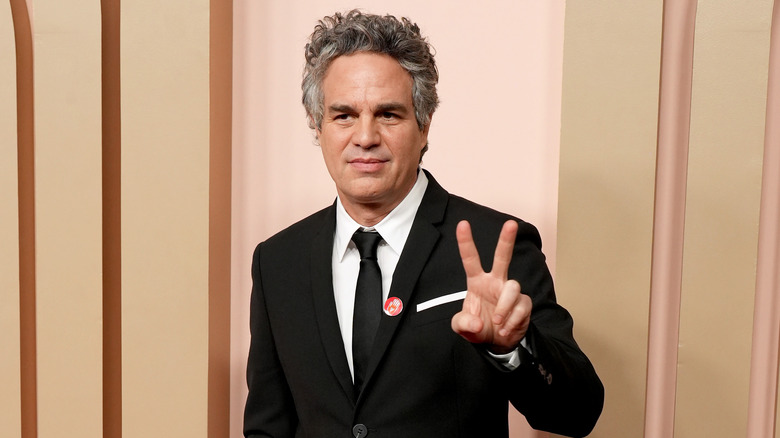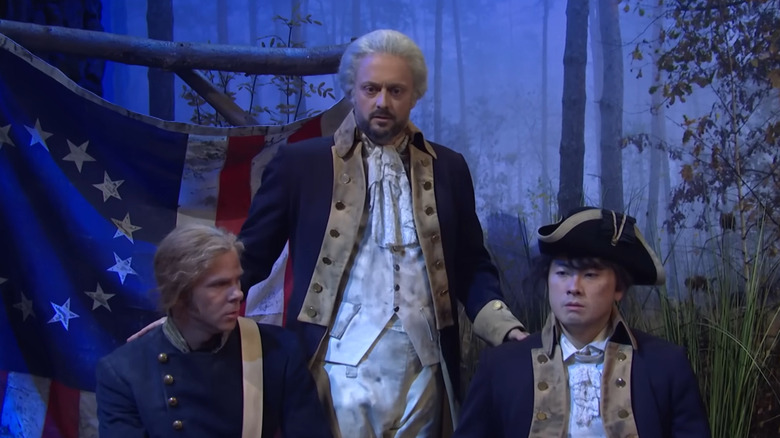The Real Reason Mark Ruffalo Won't Host Saturday Night Live
Lorne Michaels' "Saturday Night Live" builds its script on the fly and often changes things moments before a segment goes live. While that kind of process allows production to keep pace with the rapidly shifting sands of hot-button news and trends, it's strenuous on the talent involved. During a 2024 appearance on Marc Maron's "WTF" podcast, Mark Ruffalo admitted that he turned down the opportunity to host "SNL" because the behind-the-scenes legwork terrified him. When pressed for more information, he clarified that his fear stems from a learning disorder that he believes the show is not equipped to accommodate.
"I'll never be asked back. I don't think Lorne Michaels likes it when you say no. It just scared the living s*** out of [me]," said Ruffalo at around 35:30 of "WTF" Episode 1513. "I'm dyslexic ... I'll lose where I'm at on the page. When I hear about how that show works, changing things at the last second, and I want to be good at it. I've been watching that my whole life and like, I don't want to be the guy, the host who sucks. I owe Lorne Michaels more than that." Ruffalo added that he struggles with memorization work too, meaning that he needs the material well in advance if he's going to internalize it properly, and that's just not how "SNL" operates.
How does SNL operate, exactly?
According to a 2018 analysis from E! Online, a standard "Saturday Night Live" work week is a six-day slog that begins early Monday morning and ends late Saturday night. Day 1 is a pitch meeting where writers, screen talent, the guest host, and Lorne Michaels discuss potential sketches. On Day 2, writers create the base script that the screen talent will read on Day 3 for Michaels, who will either approve or deny each sketch.
"Every week there are winners and losers, and so it's a friendly, respectful competition, but nevertheless, it's a competition," said writer Bryan Tucker. "And there's no week that I say, 'Oh, you know what? I'll just kind of phone it in this week, or I'll take it off.' Otherwise, I'm not involved in the show."
Day 4 sees the designers fashion the physical pieces — costumes, sets, props, etc — and Day 5 is dedicated to blocking rehearsals and pre-recorded segments. Then, finally, everyone converges on Day 6. The team gets one full run before "SNL" goes live that evening to ensure that the production is ready for a global audience.
That's a lot of pressure, even for artists who thrive in that sort of environment. As someone who loves "SNL" and respects its creator, Mark Ruffalo understands this. The poor guy's already coping with a tragic past, so he doesn't need another reason to be stressed. Until such a time as "SNL" learns how to slow down, it will probably stay a Hulk-free zone.

